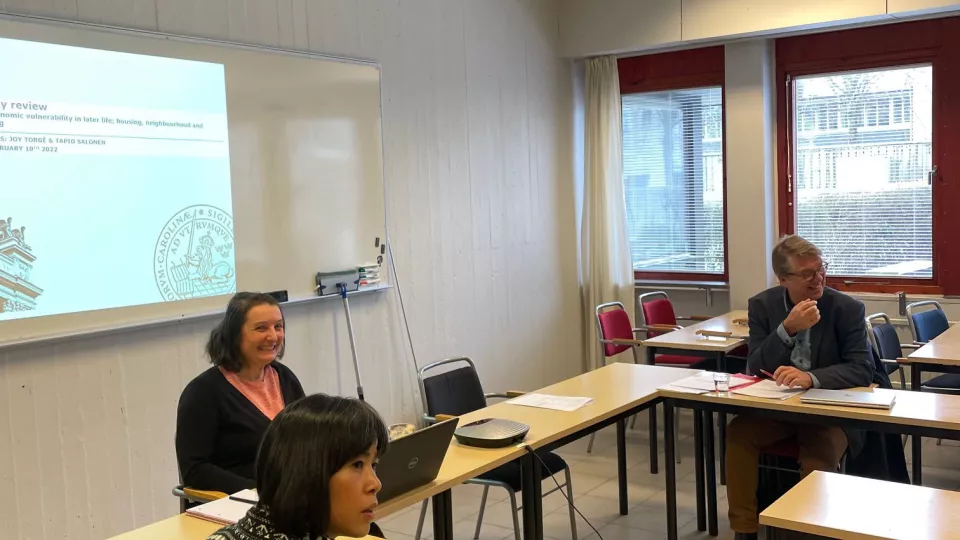Socio-economic vulnerability in later life, such as having a low pension or residing in a deprived neighbourhood, is associated with reduced coping abilities and increased deprivation risks.
However, research on housing and health dynamics for older adults with socio-economic vulnerability is lacking.
One of Agata Yadav´s studies showed that most participants needed to supplement their pension with savings or earnings to afford housing and living costs. Relocating or renting out the home was an additional asset. Even if most participants preferred to age in place, they made pragmatic considerations and plans for the future.


